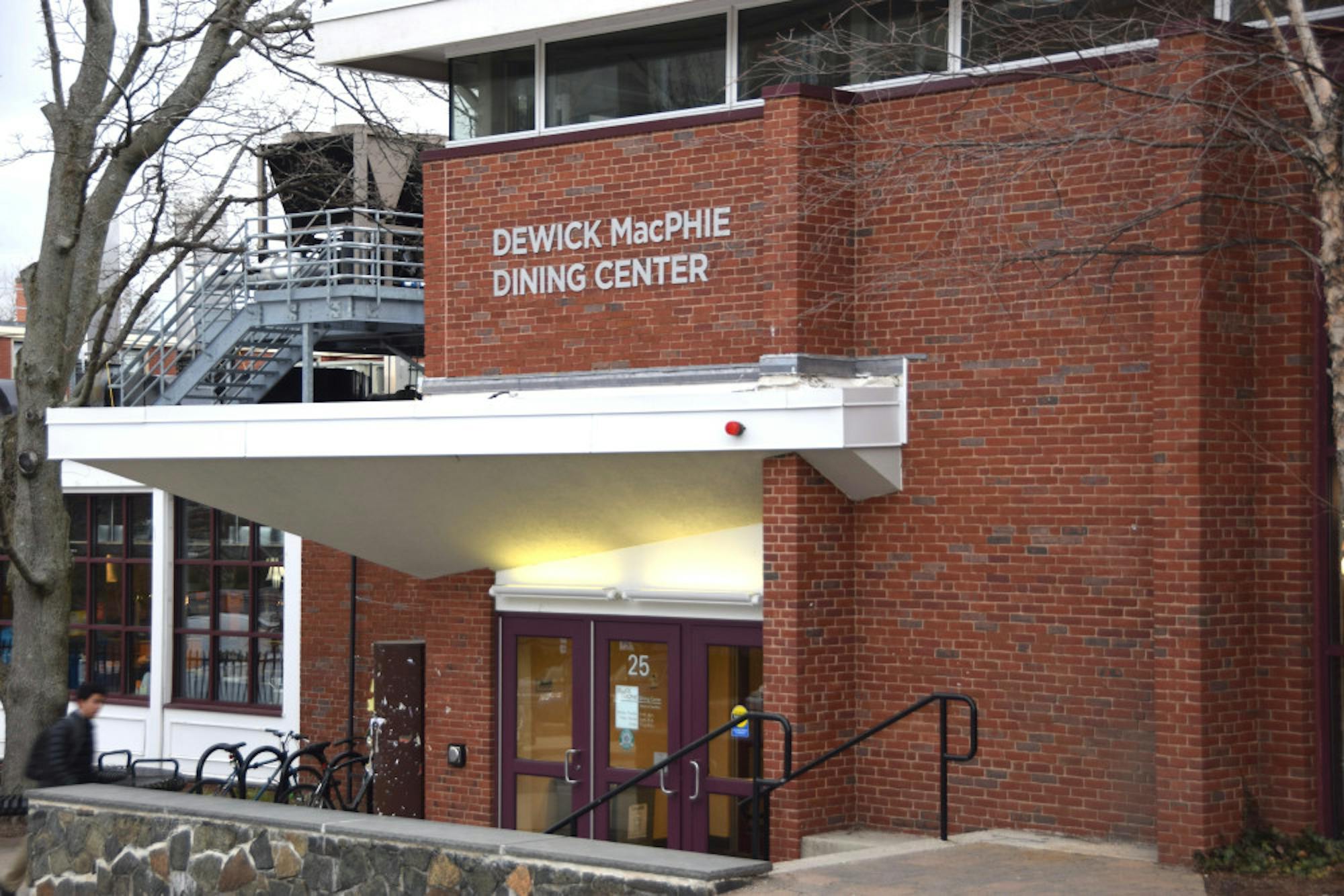Last month, Tufts Dining Services launched ALL 9 FREE, a new allergen-free platform in Dewick-MacPhie Dining Center. The platform, which operates concurrently with Dewick’s hours of operation and offers meals for breakfast, lunch and dinner, includes items that are free of the top nine allergens: eggs, fish, gluten/wheat, milk, peanuts, shellfish, soy, tree nuts and sesame.
The emergence of the ALL 9 FREE platform reflects national trends and trends within the Tufts community, which has seen an increase in the severity of allergies and the number of students who are severely allergic, according to Director of Dining and Business Services Patti Klos.
Klos added that the platform, and specifically the decision to dedicate a whole cooking area to it, was also born out of student inquiries and needs; many students wanted the assurance that the way their food was prepared was isolated and free from cross contamination.
Kelly Shaw, Tufts’ nutrition marketing specialist, said that 150 students have registered their allergies and dietary restrictions with Student Accessibility Services but noted that there could be more beyond those who have self-identified.
Sophie Buckingham, a student who has a mild gluten intolerance, said the platform and its new options have not only made it a lot easier for people like her to find food, but it particularly helps other students who have severe allergies and restrictions.
“I have friends who went off the meal plan because there weren’t many options for them in the dining hall, and I think they really would have benefited from this station,” Buckingham, a senior, said.
The measures in place, like the station’s layout, placement in Dewick, and the signs urging visitors to use a clean plate every time at the platform, are necessary for preventing cross-contamination.
“One of my friends has celiac disease and, before [the platform], she’d have the same option every night and that was about it. It was also harder for her to eat and not worry about cross contamination,” Sara Morsi, a first-year, said.
Shaw said that the addition of the ALL 9 FREE platform mitigates some of the burdens placed on students by increasing flexibility and spontaneity. Before, with the other dietary programs on campus, students had to plan and notify dining staff about their preferred meals in advance.
“I’ve had students tell me ‘thank you so much, this makes it so much easier. It’s such a relief to be able to go in at any time and know that there’s food that’s been prepared safely,’” she said.
In planning for the future, Klos and Shaw listed their hopes for improving the existing dietary programs. For one, they intend to expand the ALL 9 FREE menu with new recipes and ensure its participation in special dining events.
Klos and Shaw also stressed the importance of increasing education and awareness about food allergies among the entire Tufts community, well beyond the confines of the dining centers and beyond students with food allergies — an effort intended to promote food safety in classrooms and other campus environments.
“I feel most confident about how students with food allergies eat on campus in the dining center because I know that we have training and there are systems in place,” Shaw said.
Other efforts aimed at meeting students’ dietary needs will focus on fortifying communication about the dietary services available and implementing meetings with resident advisors to present information that could be passed along to students.
“It is a combination of things: being responsive but also being proactive and anticipating the needs,” Klos said.
Tufts Dining introduces new platform free of top allergens

Dewick-MacPhie Dining Center is pictured on March 4.





